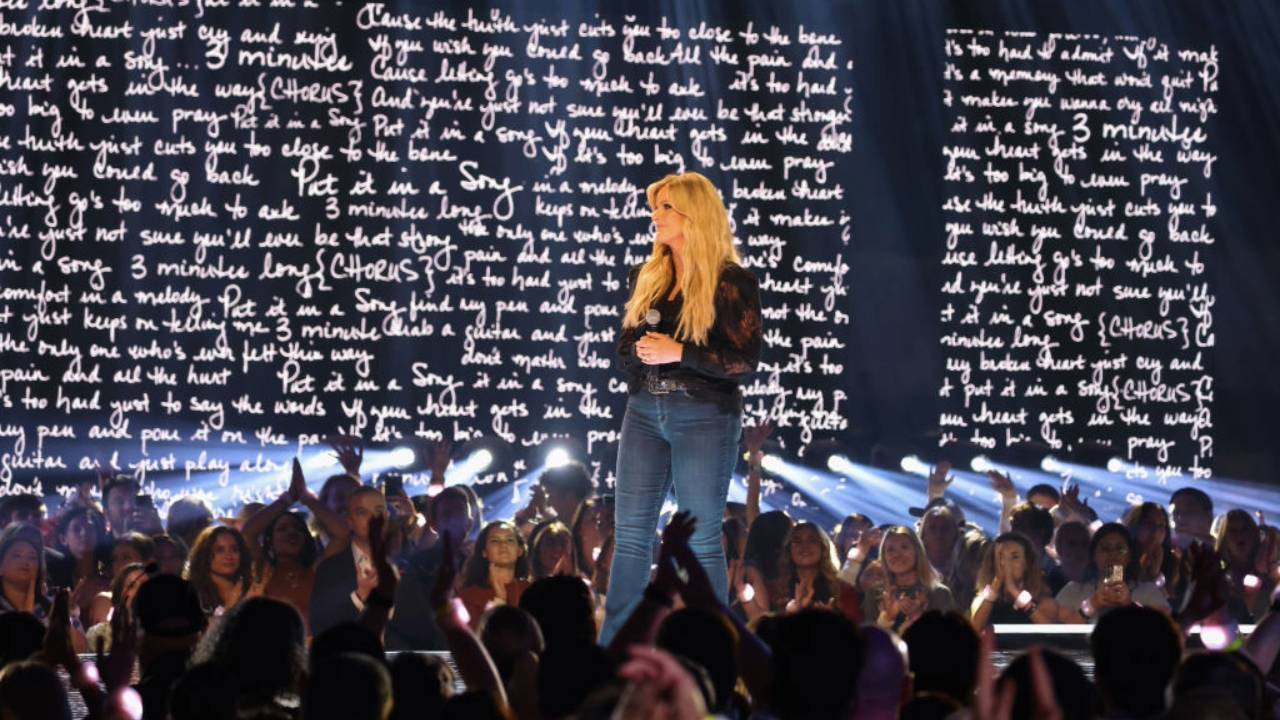Jim Lauderdale Recalls His Bluegrass Roots

Jim Lauderdale is racking up his frequent flyer points. Last month alone, the good-natured singer-songwriter performed on his ancestral stomping grounds in Lauder, Scotland, before traveling to New York for a two-night Grateful Dead tribute. A few days later, he hopped a plane to Australia for the Tamworth Country Music Festival.
Now the Nashville-based artist is off to Los Angeles because Bluegrass, one of two albums he released last year, is up for a Grammy for best bluegrass album. (His collaboration with Ralph Stanley, Lost in the Lonesome Pines, collected the prestigious trophy in 2003.) In a recent interview with CMT.com, he discussed his earliest musical memories, being a late bloomer in the music business and his surprising secret to getting through the hard times.
CMT: How did you get hooked on bluegrass?
Lauderdale: It was a combination of several acts and several songs that I heard. When I first heard the Stanley Brothers do "Rank Stranger," that really gripped me. I drifted into bluegrass when I was about 13 or 14, and all at once there was the Stanley Brothers, Bill Monroe, Flatt & Scruggs, and then I started discovering folks like the Seldom Scene and Don Stover a few months later. There was just something about it that I can't really put my finger on, but it would electrify me when I'd hear it. I started playing the banjo and did that for several years, and I would usually sing tenor. When I sang Stanley Brothers songs, I did Ralph's parts, singing-wise.
Later, I started playing Dobro when I was about 17 and then rhythm guitar. A few years later, my banjo playing started decreasing because I didn't have time, and I was playing more acoustic guitar. I just had the feeling that I was never going to be an innovator on the banjo or somebody that would bring something new, or I'd never be as clean as Earl Scruggs or Ralph Stanley or as innovative as Bill Keith or Béla Fleck.
Was that when you thought about turning to songwriting?
About that time, yeah. I was about 19. I still played some banjo, but that was around when I was first able to finish a song. I had gotten song ideas earlier, bits and pieces. The first one was a bluegrass song called, "I'm Choppin' Wood." A simple song. It just went from there.
How would you describe those early songs?
I would say they were kind of a mixture. I had started developing eclectic taste. I was also listening to a lot of Hank Williams, George Jones and Merle Haggard and also the Grateful Dead and their take on country music. A few years earlier, aside from all the bluegrass, the Will the Circle Be Unbroken album was really important to me. Also, though, I really started appreciating the blues and listened to a lot of Muddy Waters and Howlin' Wolf and liked the Allman Brothers a lot and liked Eric Clapton's work.
Through that time too, when I was much younger, I listened to the Beatles when I was in elementary school and all the rock that was in that period. That kind of turned into psychedelic rock like Jimi Hendrix and Cream. Then I started following Eric Clapton's career with Derek & the Dominos. I always really liked him a lot.
Mark Chesnutt went to No. 1 with one of the songs you wrote, "Gonna Get a Life." Was that a milestone?
Oh, that was. That was the first one. They had a little party and [co-writer] Frank Dycus and I went, and I invited my mom and dad. They came over from South Carolina, and that was really a great feeling. I was kind of a late bloomer. Going back to when I first started writing and doing demos when I was 19, at that time I thought, "Well, I'll probably have a record deal within three months and then be touring this summer. I'm in college, but this is what I want to do. So, gosh, that's the way it's going to happen." I've been wrong about most things that I thought were a plan. From the very beginning, when I was in high school, I wanted to make bluegrass records. Then I wanted to make a record that was half bluegrass, half Hank Williams country instrumental with no drums. And then the next record would have drums and then kind of go on from there and have this progression, and it never turned out that way.
Did you have the albums titled, too?
I did. I had some album titles. They say God laughs when you tell him your plans. He's had a good laugh, several times.
Do you always have ideas for records in your head?
Yeah, I do. I don't know if I can pull it off or if it's wise to release as many records as I want ... but I think I'll put out at least two more in 2007. I've already got ideas for next year. There's another bluegrass one I want to get out in the fall, and I want to do one with Buddy Miller next year. We've been talking about it for so long, but our schedules are never in the same place. A collaboration, kind of as a duo. He's been one of my favorites and a really good friend for a long time. There's never a shortage of fantasy projects for me and people to work with.
Do you ever take vacations?
I go to tai chi camp in the summer in Northern California. There's a teacher there called George Xu and he usually brings an older grandmaster over, and they're usually in their 70s, and they're these amazingly healthy, skilled, agile gentlemen. That's what I aspire to be like as I grow older. There's a fellow named Michael Tse. He splits his time between England and Hawaii and does seminars in the states, too, so I try to go study with him, too. He teaches what they call qigong. That's similar to tai chi. It predates tai chi, but it's basically a series of movements that are really good for you.
That's really my vacation, and it recharges me. I tell you, there are so many ups and downs in the business, that that has been one thing that has really helped me get through the rough times or to get away from it totally. Otherwise, it really does consume a lot of energy as you're struggling because it's all relative. To me, I'm still a new person in town trying to get something going.





